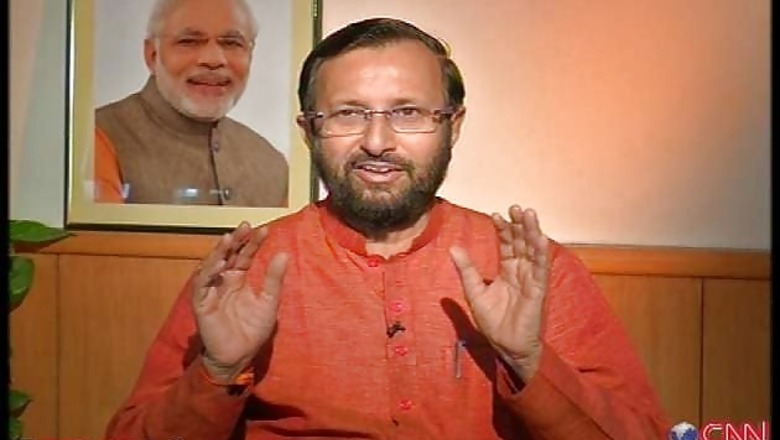
views
New Delhi: India has signed a global treaty to protect human health and the environment from the adverse effects of mercury, Environment Minister Prakash Javadekar said on Thursday.
Javadekar, who returned from the US on Thursday after attending the UN Climate Summit, said India has signed the pact on Minamata to address the emissions and releases of one of the most notorious heavy metals - mercury.
"We have signed the treaty on Minamata. Because mercury is highly polluting and we will not use it. We have signed such an agreement. I think India's attitude has always been progressive and we have taken this forward," the minister said without elaborating.
India signed the treaty more than a year after adoption of the Minamata Convention on Mercury. It was agreed at the fifth session of the Intergovernmental Negotiating Committee in Geneva, Switzerland.
The major highlights of the convention include a ban on new mercury mines, phasing out of existing ones, control measures on air emissions, and the international regulation of the informal sector for artisans and small-scale gold mining.
The convention draws attention to a global and ubiquitous metal that, while naturally occurring, has broad uses in everyday objects and is released to the atmosphere, soil and water from a variety of sources. Controlling the anthropogenic releases of mercury throughout its life cycle has been a key factor in shaping the obligations under the convention.



















Comments
0 comment